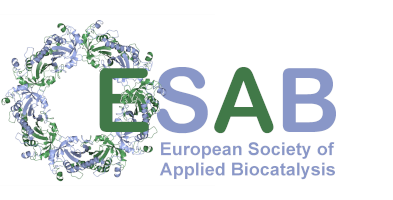ThermoMPNN: modeling protein stability in silico using deep learning
Abstract
Natural proteins are remarkable molecules capable of carrying out myriad complex chemical reactions. Through protein engineering, we often seek to adapt natural proteins to fulfill novel roles outside of their native biological contexts. While exciting progress has been made toward engineering proteins to serve as industrial biocatalysts, stability is often a limiting factor in their utility. To address this issue, we have developed a novel deep learning algorithm called ThermoMPNN to model changes to protein stability as a function of amino acid mutations. Our model, which is trained on large-scale site-saturation mutagenesis data, provides rapid, state- of-the-art predictions on single[1] and multiple[2] point mutations when evaluated on a wide range of different protein structures and families. In particular, our model is exceptional at identifying stabilizing mutations, which are often difficult to predict due to their rarity. ThermoMPNN is freely available for academic andcommercial use through a user-friendly web server or python package.
References:
[1] Henry Dieckhaus, Michael Brocidiacono, Nicholas Z. Randolph, Brian Kuhlman, Transfer learning to leverage larger datasets for improved prediction of protein stability changes. Proc. Natl. Acad. Sci. 121 (6), e2314853121 (2024). https://doi.org/10.1073/pnas.2314853121.
[2] Henry Dieckhaus, Brian Kuhlman, Protein stability models fail to capture epistatic interactions of double point mutations. Protein Sci. 34 (1), e70003 (2025). https://doi.org/10.1002/pro.70003.
About the Speaker(s)
 Henry Dieckhaus studied chemistry at Boston College, where was awarded a Goldwater Fellowship in 2019. Prior to graduate school, he served as a post-baccalaureate research fellow at the National Institute of Neurological Disorders and Stroke. Henry is currently a graduate student in the lab of Dr. Brian Kuhlman at the University f North Carolina at Chapel Hill (UNC). His research at UNC is currently focused on structure-based computational methods for de novo protein design with an emphasis on drug discovery. To support his ongoing doctoral work, Henry has received several awards, including a 3-year Graduate Research Fellowship from the National Science Foundation and a Predoctoral Fellowship from the American Foundation for Pharmaceutical Education.
Henry Dieckhaus studied chemistry at Boston College, where was awarded a Goldwater Fellowship in 2019. Prior to graduate school, he served as a post-baccalaureate research fellow at the National Institute of Neurological Disorders and Stroke. Henry is currently a graduate student in the lab of Dr. Brian Kuhlman at the University f North Carolina at Chapel Hill (UNC). His research at UNC is currently focused on structure-based computational methods for de novo protein design with an emphasis on drug discovery. To support his ongoing doctoral work, Henry has received several awards, including a 3-year Graduate Research Fellowship from the National Science Foundation and a Predoctoral Fellowship from the American Foundation for Pharmaceutical Education.
